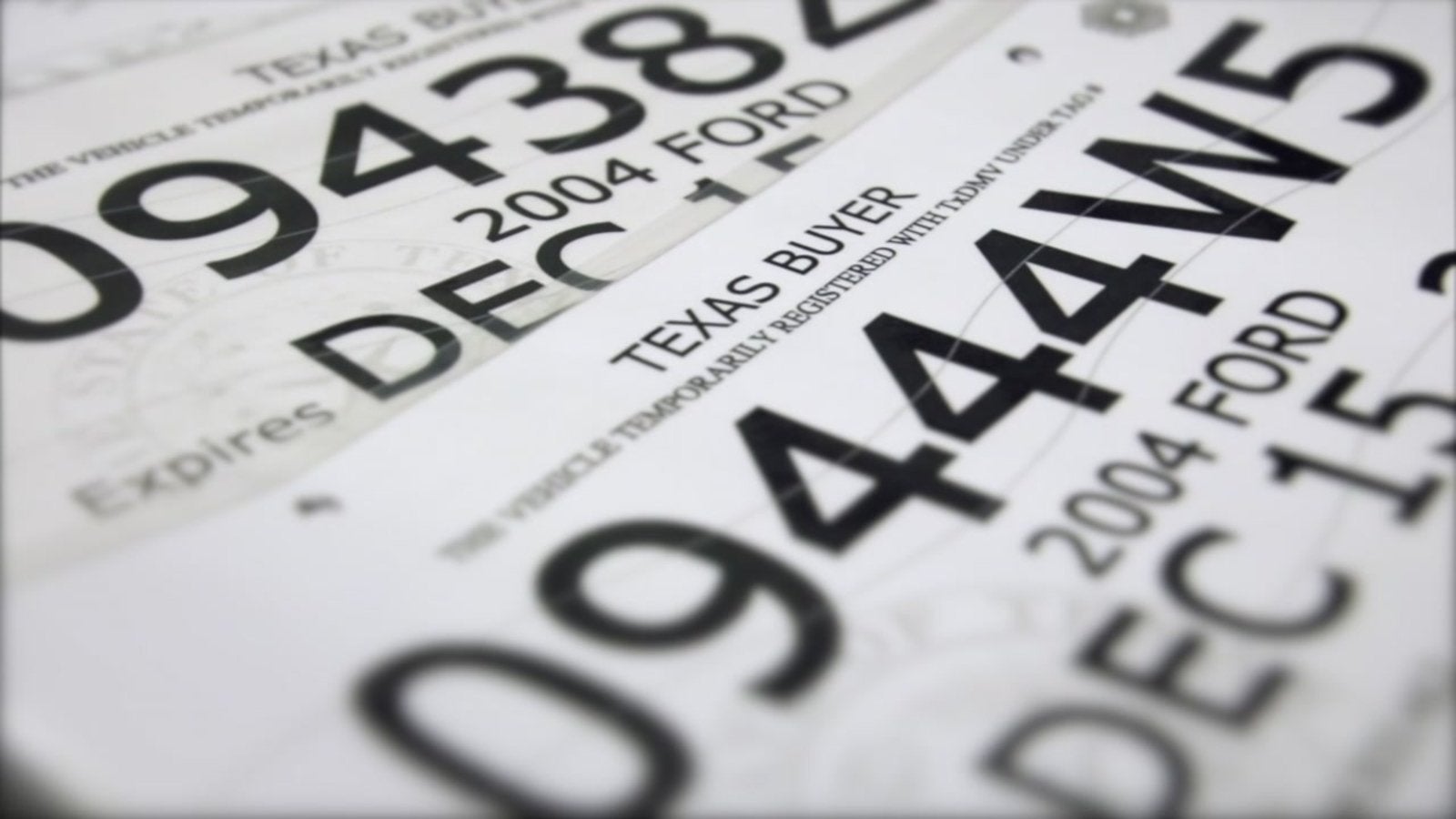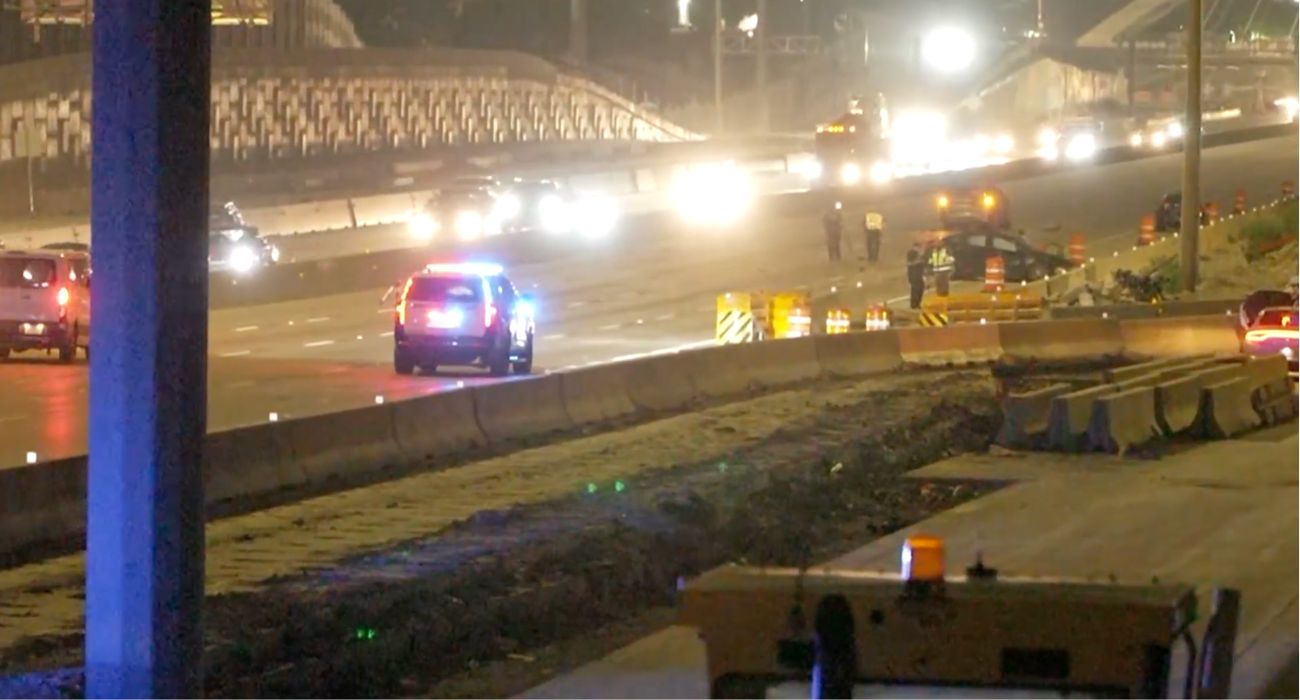An investigation found that fraudulent car dealers make millions by illegally selling Texas paper license plates.
For about an $800 fee, anyone in Texas can become a licensed car dealer and access the state’s system to print official paper tags. Dealers are only supposed to issue paper tags to people who buy a car to operate the vehicle until they obtain metal plates.
However, some small dealers are abusing the system for profit. Fraudulent paper tags are being sold under the table, often to avoid safety inspections, emissions testing, vehicle registration, or to hide a stolen vehicle. These fake plates help criminals hide and allow unsafe cars to stay on the road.
According to NBC 5’s investigation, Wale Automotive should be the highest-selling car dealer in North Texas in 2021. DMV records obtained by the news station show the dealer, whose listed address leads to a dirt lot and a small vacant building in Sherman, issued 17,000 paper tags in just eight months this year.
That should mean that they have sold 17,000 cars, but that is extremely unlikely. The most prominent brand name dealerships in the Dallas-Fort Worth area have issued fewer than 10,000 paper tags this year.
Wale Automotive dealer’s license has now been revoked after an investigation by the DMV, but the dealer had already printed more than 27,000 paper tags since it first obtained a license.
Sergeant Jose Escribano investigates fraudulent paper tags as a Travis County Constable’s Clean Air Task Force member. He says several dealers across the state, such as Wale Automotive, don’t sell any vehicles. Instead, these dealers sell paper plates for profit.
Escribano says the fraudulent dealers often advertise the fake tags on sites like Craigslist and Facebook marketplace, usually going for around $80.
Escribano estimates that the sale of illegal paper tags has become a $200 million black market in Texas based on the dealers he has investigated and the number of tags they have printed.
The easy process to become a licensed dealer in Texas has now become a national problem. Police in New York City recently made a plea for help after crimes caught on camera involving cars with fake Texas paper tags occurred, and detectives could not trace the vehicles.
“One reason it helps them is it’s a ghost car,” New York Police Department detective Maureen Stefenelli said. “That’s what I call it, a ghost car. It’s pretty much — it could be undetectable.”
Officers with the Houston Police Department’s (HPD) Hit and Run division say plates are the first place they look for leads if someone leaves the scene of a crash. When the paper plates are fake, tracking down the suspect becomes increasingly tricky.
Officers with HPD also say they have seen cases of suspects putting fake paper tags over metal license plates before committing a crime, such as a robbery or a burglary, to avoid identification.
Corporal Santos Torres with the Harris County Constable thinks the problem is so widespread that he estimates that half of the paper tags on the road are fake.
The Texas Legislature did address some concerns last spring.
A law passed by the Texas Legislature that went into effect September 1 allows the DMV to set limits on the number of tags a dealer can issue, but the limit has still not been established.
The new law will also enable the agency to quickly revoke dealership licenses when they suspect fraud. Before this new law, the DMV could not revoke a dealer’s license without undergoing a lengthy administrative process.
In Texas, fraudulently displaying a fake license plate, paper or otherwise, is a Class B misdemeanor. The offense is punishable by up to 180 days in jail and up to a $2,000 fine.






